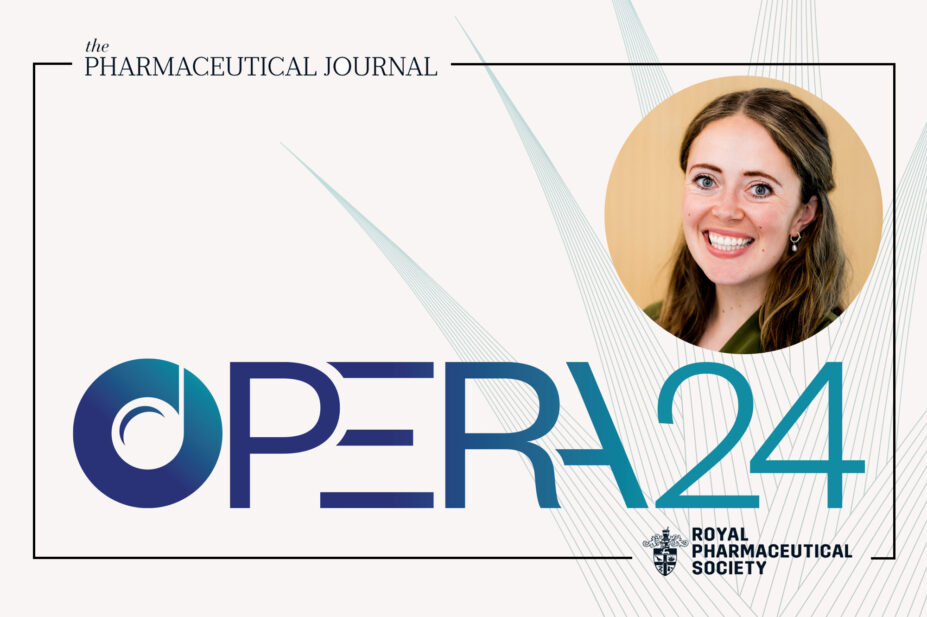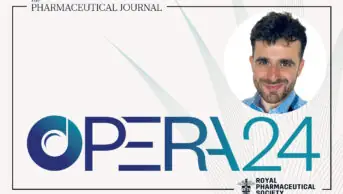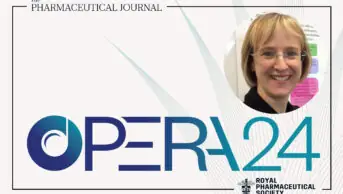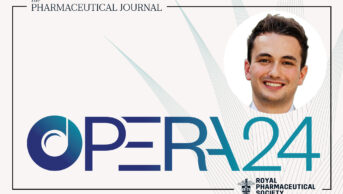
The Pharmaceutical Journal
Anna Robinson-Barella is determined to address the barriers that the most vulnerable and marginalised members of society often face in accessing medicines. Through her research, Anna is seeking to provide practical solutions to reach and better support these patients.
“Let’s challenge what is happening now because it definitely isn’t good enough. We are all very much aware of the inequity and unfair health experiences that people can face and I guess my research aims to tackle that,” she says.
After qualifying as a pharmacist in 2016, and working in a split role across hospital and general practice, Anna’s journey as a researcher began when she successfully applied for a full-time PhD position at Newcastle University in 2018. For Anna, the opportunity to explore the clinical questions that she was constantly asking was too good to pass up.
“I was always curious and would regularly question why we were doing things the way we were. I was also working in trauma and orthopaedic surgery, where patients were at a really vulnerable point in their life, and I would regularly be asking questions over how we can make that experience better,” she says.
“I guess there was also a growing sense of frustration about not having the capacity to investigate these questions myself, so when I saw an opportunity to apply for a PhD position, I thought ‘If I don’t go for it now, I think I’ll regret it’.”
Anna has worked on a National Institute for Health and Care Research (NIHR) project exploring medicine inequalities affecting ethnic minority populations. Her research has subsequently extended into health inequality in its broadest sense and how it affects a variety of vulnerable groups, including people experiencing homelessness and those applying for refugee and asylum status.
Anna puts the patient voice front and centre during conceptualisation of her research ideas and approaches. “I’m really fortunate now. I’ve built up some really great relationships with local charities and community groups that I go along to and pitch my research ideas to almost put the feelers out and ask some basic questions like ‘Is that topic important?’, ‘How do I even go about the interview questions and making sure they’re acceptable?’”
The relationships established by Anna have also led to the creation of new services that bring healthcare closer to groups she works with. “We now have a bus at Newcastle University and we go out to community groups and into places of religious faith, and offer health check services and have tried to give something meaningful back in exchange.”
Anna is also a strong advocate for the role that qualitative methods can play in pharmacy research and how these tools can be used to improve practice.
“I love being able to sit back and listen to people’s answers,” she explains. “In pharmacy, we work in a highly personal, individualised way, and while numbers and statistical data tell us a lot, they can only ever go so far. It’s always the data that fall outside the line of best fit that I want to be investigating and this is where qualitative methods really come into their own.”
Anna has fast emerged as an expert in the use of co-design and meta-ethnography — a method for synthesising qualitative research. “That’s where my passion really comes in; being able to look at all the different views of people, bring it together and then try to go beyond that, recognising the reflexivity that you have as a researcher. For me, that’s what really makes a difference.”
Her expertise in qualitative methods is widely recognised and she has already contributed to several international collaborative publications. “The methodology is so unique and different. No other person in pharmacy research has done meta-ethnography; in fact, when I started, not many people in wider healthcare research were doing them,” she says.
Anna is now also acting as a methodological advisor and supervising three PhD students researching ethnicity- and medicines-related health inequalities. The work she has conducted around cultural competence within the profession has been incorporated into the re-design of Newcastle University’s MPharm curriculum.
Anna is passionate about sparking clinical curiosity and enthusiasm for research within the next generation of pharmacists and is an active member of the pharmacy research community. She has held roles within the Royal Pharmaceutical Society’s (RPS’s) Early Career Pharmacist Advisory Group, contributed to RPS Annual Conference stakeholder meetings and is now providing mentorship for pharmacists applying for NIHR doctoral pathways, helping to grow research capacity within pharmacy.
“Within our profession, we’ve got people that are ideally placed to be doing research on the ground. They have all the experience but there isn’t always someone there to help and I really want to be that person providing support at all stages of the journey, from undergraduate education through post-registration and into practice.”
Panel comments
“A promising researcher with a bright future.”
“Building a reputation as an independent researcher within the field of medicines inequalities and working with minoritised groups.”
“I was impressed how she has managed to make the concept of a ‘pharmacy bus’ work and to deliver that service to the local community – an inspirational candidate.”
“Impressive record of public engagement. Excellent promotion.”
“Important and original work. Engagement is high and her community work is to be commended.”
“Excellent achievements across all domains showing real potential.”
Publications
Robinson-Barella A, Tayki C, Chan H & Lau WM. Embedding cultural competency and cultural humility in the initial education and training of undergraduate pharmacists: a qualitative exploration of pharmacy student perspectives. Int J Clin Pharm 2024;46(1):166–76. doi: 10.1007/s11096-023-01665-y
Alamer S, Robinson-Barella A, Nazar H & Husband A. Influence of ethnicity on adherence to non-surgical interventions for COPD: a scoping review. ERJ Open Research 2023. doi: 10.1183/23120541.00421-2023
Asiri R, Robinson-Barella A, Todd A & Husband A. Understanding the influence of ethnicity on adherence to antidiabetic medication: Meta-ethnography and systematic review. PLoS One 2023;18(10):e0292581. doi: 10.1371/journal.pone.0292581
McCann JE, Lau WM, Husband AK & Robinson-Barella A (corresponding author). ‘Creating a culturally competent pharmacy profession’: a qualitative exploration of pharmacy staff perspectives of cultural competence in community pharmacy settings. Health Expect 2023;26(5):1941–53. doi: 10.1111/hex.13803
Asiri R, Robinson-Barella A, Todd A & Husband A. Ethnic Disparities in Medication Adherence? A Systematic Review Examining the Association between Ethnicity and Antidiabetic Medication Adherence. PLoS One 2023;18(2):e0271650. doi: 10.1371/journal.pone.0271650
Robinson A, Sile L, Govind T et al. Recommendations for community pharmacy to improve access to medication advice for people from ethnic minority communities: a qualitative, person-centred, co-design study. Health Expect 2022;25(6):3040–52. doi: 10.1111/hex.13611
Robinson A, Sile L, Govind T et al. He or she maybe doesn’t know there is such a thing as a review: a qualitative investigation exploring barriers and facilitators to accessing medication reviews from the perspective of people from ethnic minority communities. Health Expect 2022;25(4):1432–43. doi: 10.1111/hex.13482
You may also be interested in

OPERA 2024: Ryan McNally

OPERA 2024: Zoe Edwards
